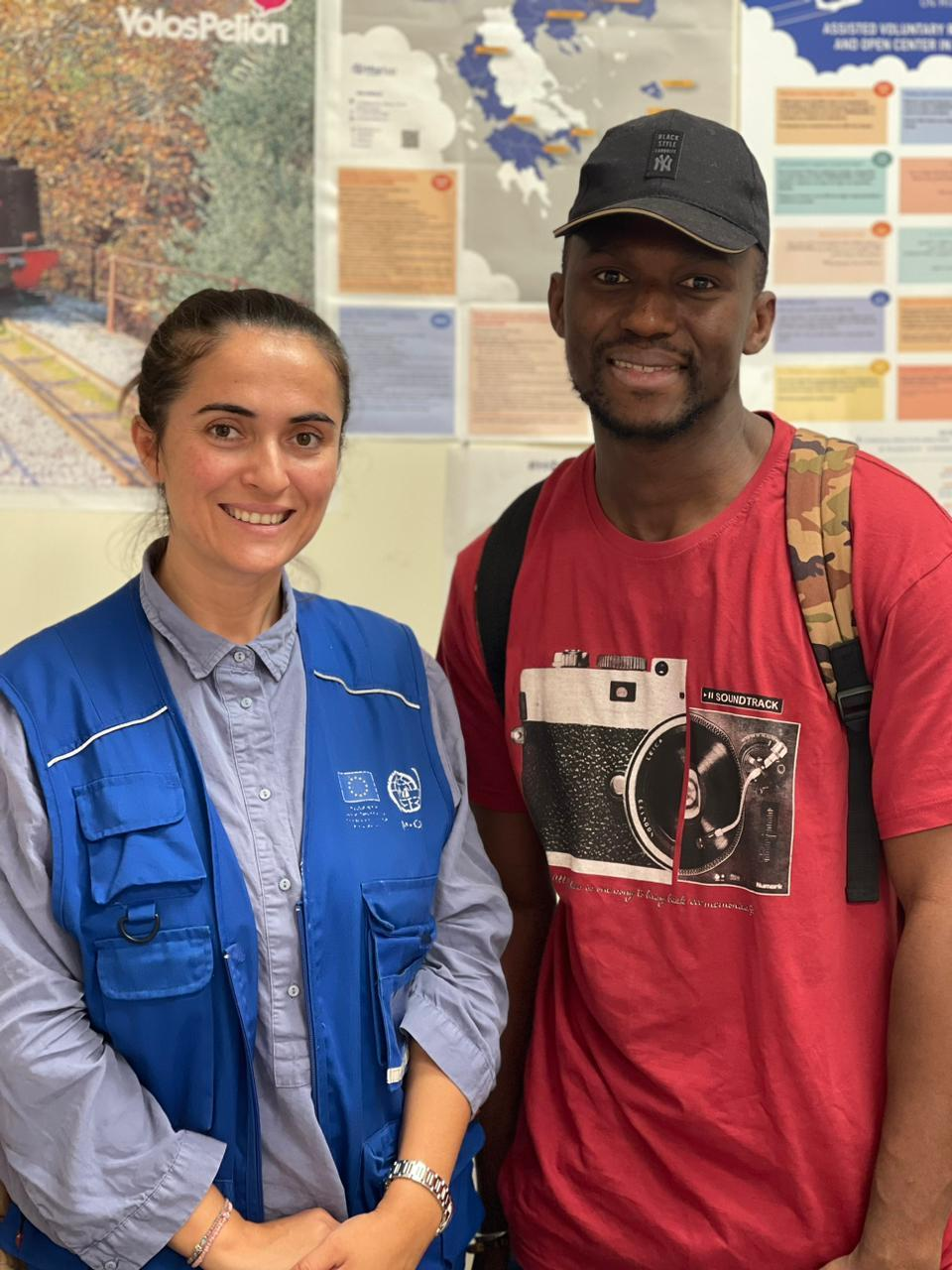-
Who We Are
WHO WE AREIOM is the leading inter-governmental organization promoting humane and orderly migration for the benefit of all, with presence in over 100 countries. Greece is a founding member of IOM.
About
About
IOM Global
IOM Global
-
Our Work
Our WorkAs the leading inter-governmental organization promoting since 1951 humane and orderly migration, IOM plays a key role to support the achievement of the 2030 Agenda through different areas of intervention that connect both humanitarian assistance and sustainable development. Across Greece, IOM provides a comprehensive response to the humanitarian needs of migrants, internally displaced persons, returnees and host communities.
Cross-cutting (Global)
Cross-cutting (Global)
- Data and Resources
- Take Action
- 2030 Agenda
IOM helps more than 400 asylum seekers access the Greek labor market
IOM helps more than 400 asylum seekers access the Greek labor market
Athens – Since 2022 the International Organization for Migration (IOM) assisted 447 asylum seekers hosted in open accommodation facilities in mainland Greece to find a job on the Greek labor market.
A new report highlights IOM’s contribution to empowering and improving employment prospects for migrants hosted in the Greek Reception System, as part of the project ‘Harmonizing Protection Practices in Greece (HARP)’ funded by the European Union (EU).
Since the beginning of 2022, 2,393 asylum seekers have received orientation services on how to access the Greek labor market. A total of 789 persons have been supported to submit a job application, with 447 securing an employment opportunity.
IOM staff specialized in skills development focused on raising awareness about labor rights and addressing migrants’ misconceptions and myths about the job market in Greece.
Orientation support included job preparedness seminars, CV-writing workshops, labor market inclusion and activities to create links with local communities.
“When the project started, the challenge was to rebuild the confidence of asylum seekers in their ability to learn and feel ready for their social and labor integration,” said HARP Project Manager, Simona Moscarelli.
“Through the development of culturally relevant, adult-specific learning tools and labor market orientation, IOM and its partners established a relationship of trust with the communities,” she continued. “The provision of education and integration services at an early stage helped asylum seekers feel motivated again and made them aware of their rights and responsibilities in Greece. The educational material developed is publicly available for all migrants and actors active in the fields of adult education and integration.”
To address language barriers IOM and partners organized 446 Greek and English language courses and ICT classes across mainland sites.
A total of 547 people, half women and half men, completed a Greek language short-term course, with close to 50 per cent being youth aged 18 to 29.
“I am grateful to the IOM team for helping me attend the Greek sign language course,” said Muhammed, a deaf and mute 34-year-old migrant from Gambia. “After applying for several jobs, I was offered a position in a six-star hotel in Rhodes. I felt really satisfied,” he added.

The HARP project developed an online toolkit (greece.iom.int/skill) which includes learning materials, guides, educational videos, dictionaries and lesson plans to facilitate language and ICT courses for adults. All tools were designed to encourage life-long learning and the advancement of skills for third country nationals in Greece. They are specifically tailored to the needs of asylum seekers and migrants.
The project is implemented by IOM throughout Greece, in cooperation with the Directorate of Social Integration of the Ministry of Migration and Asylum, and local partners such as SolidarityNow, Arbeiter – Samariter – Bund (ASB) and Danish Refugee Council (DRC).
The HARP project also implements protection activities and supports operations coordination and community engagement services to improve the quality of humanitarian response and protection assistance to migrants hosted in the Greek Reception system.
It is funded by the EU, through the European Commission’s Directorate General for Migration and Home Affairs (DG HOME), in coordination with the Reception and Identification Service of the Ministry of Migration and Asylum.
